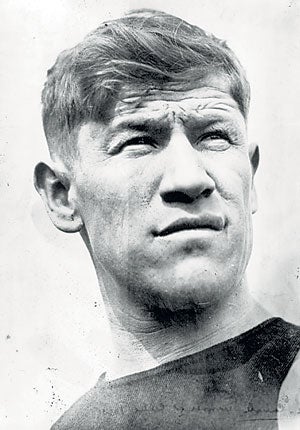Simon Turnbull: Britain can learn from way Sweden has kept legacy of 1912 alive
Olympics Diary: When you visit, you can feel the soul of athletics. You can breathe the history

Your support helps us to tell the story
From reproductive rights to climate change to Big Tech, The Independent is on the ground when the story is developing. Whether it's investigating the financials of Elon Musk's pro-Trump PAC or producing our latest documentary, 'The A Word', which shines a light on the American women fighting for reproductive rights, we know how important it is to parse out the facts from the messaging.
At such a critical moment in US history, we need reporters on the ground. Your donation allows us to keep sending journalists to speak to both sides of the story.
The Independent is trusted by Americans across the entire political spectrum. And unlike many other quality news outlets, we choose not to lock Americans out of our reporting and analysis with paywalls. We believe quality journalism should be available to everyone, paid for by those who can afford it.
Your support makes all the difference.It has been difficult enough for Charles van Commenee, the head coach of UK Athletics, to put a squad together for the European Team Championships, which take place in Stockholm tomorrow and Sunday, what with withdrawals accounting for the world triple jump champion Phillips Idowu and a host of others. Yesterday came the cancellation of the Scandinavian Airways flight that was scheduled to carry the north of England contingent. Thankfully, Jenny Meadows, Helen Clitheroe and Co eventually made it – via Copenhagen.
It remains to be seen how many members of the patchwork British team for this weekend's continental competition manage to make it to the 2012 Olympic Stadium in London but they will not be short of inspiration as they go about their running, jumping and throwing in the evocative setting of the 1912 Olympic Stadium. As the battle for the future of the new Olympic Stadium hits the High Court, with Tottenham Hotspur and Leyton Orient seeking to reverse the decision to allow West Ham United to move into the £537m arena once the Games have left town, London could learn an awful lot on the legacy front from the success story of the oldest Olympic Stadium in use.
One year short of its centenary, the Stockholms Olympiastadion has produced more world records than any other track-and-field arena – 83 in all. It is also home to one of the leading meetings on the International Association of Athletics Federations' Diamond League circuit. The 2010 edition of the annual DN Galan meeting featured the only high-speed head-to-head of the year between Usain Bolt and Tyson Gay.
"When you visit, you can feel the soul of athletics," says Johan Storakers of the Sveska Friidrottsforbundet, the Swedish athletics federation. It is no exaggeration. The ivy-clad, patterned brickwork facade and the two towers at the east end of the stadium are the same as they were when the part-Native American decathlete, Jim Thorpe, and the first of the great "Flying Finns" of distance running, Hannes Kolehmainen, wowed Stockholmers with their world-record feats in 1912 – and when George Patton, the future US World War II general, crossed the line at the end of the running section to finish fifth in the modern pentathlon (he would have won gold had he not missed the target in the shooting).
"Unlike many historic sports stadia, the Stockholm Olympic Stadium has been left basically untouched over the years," says Chris Turner of the IAAF. "Walk beneath the home straight stand today and you are in the exactly the same passageway as trodden by Kolehmainen and Thorpe. You can breathe our sport's history in that corridor."
For that, the City of Stockholm is to thank. The municipal council took over the stadium in 1964 and has not just had it preserved as a listed historical site but made subtle developments in keeping with its 1912 style to maintain it in working order as an intimate 14,500-seater arena that is home to the Swedish first division football club Djurgardens.
"There has never been any question of it being dismantled," says Cege Berglund of Goteborgs-Posten, one of Sweden's leading sports writers. "The biggest threat was a few years ago when Djurgardens wanted to rebuild it as a football stadium, to take away the track. There was a massive public protest ,with the result that it will stand as it is for as long as you can imagine. It's loved by all Swedes because of all the tradition and the history of 1912."
In June next year that history will be celebrated with a grand jubilee night in the stadium, with athletes dressed as they were in 1912 and the crowd in costume too. Lord Coe – who missed Steve Ovett's 1500m world record because of a cock-up on the pacemaking front in his one appearance in the DN Galan meeting, in 1981 – is to be a guest of honour.
The London Games will be all but nigh by then, but they will always be lagging a century behind Stockholm on the Olympic legacy front.
Join our commenting forum
Join thought-provoking conversations, follow other Independent readers and see their replies
Comments